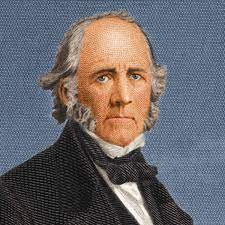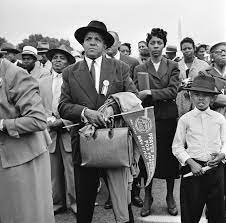Sam Houston elected as president of Texas
On September 5, 1836, Sam Houston is elected as president of the Republic of Texas, which earned its independence from Mexico in a successful military rebellion.
Born in Virginia in 1793, Houston moved with his family to rural Tennessee after his father’s death; as a teenager, he ran away and lived for several years with the Cherokee tribe. Houston served in the War of 1812 and was later appointed by the U.S. government to manage the removal of the Cherokee from Tennessee to a reservation in Arkansas Territory. He practiced law in Nashville and from 1823 to 1827 served as a U.S. congressman before being elected governor of Tennessee in 1827.
A brief, failed marriage led Houston to resign from office and live again with the Cherokee. Officially adopted by the tribe, he traveled to Washington to protest governmental treatment of Native Americans. In 1832, President Andrew Jackson sent him to Texas (then a Mexican province) to negotiate treaties with local Native Americans for protection of border traders. Houston arrived in Texas during a time of rising tensions between U.S. settlers and Mexican authorities, and soon emerged as a leader among the settlers. In 1835, Texans formed a provisional government, which issued a declaration of independence from Mexico the following year. At that time, Houston was appointed military commander of the Texas army.
Though the rebellion suffered a crushing blow at the Alamo in early 1836, Houston was soon able to turn his army’s fortunes around. On April 21, he led some 800 Texans in a surprise defeat of 1,500 Mexican soldiers under General Antonio Lopez de Santa Anna at the San Jacinto River. Santa Anna was captured and brought to Houston, where he was forced to sign an armistice that would grant Texas its freedom. After receiving medical treatment for his war wounds in New Orleans, Houston returned to win election as president of the Republic of Texas on September 5. In victory, Houston declared that “Texas will again lift its head and stand among the nations….It ought to do so, for no country upon the globe can compare with it in natural advantages.”
Houston served as the republic’s president until 1838, then again from 1841 to 1844. Despite plans for retirement, Houston helped Texas win admission to the United States in 1845 and was elected as one of the state’s first two senators. He served three terms in the Senate and ran successfully for Texas’ governorship in 1859. As the Civil War loomed, Houston argued unsuccessfully against secession, and was deposed from office in March 1861 after refusing to swear allegiance to the Confederacy. He died of pneumonia in 1863.
GAY RIGHTS
1991
AIDS activists unfurl a giant condom over Senator Jesse Helms’ home
On the sunny morning of September 5, 1991, in the Washington, D.C. suburb of Arlington, Virginia, a group of activists arrive at the home of North Carolina Senator Jesse Helms. Using ladders, several of them climb to the roof of the house, and from there they unfurl a giant piece of fabric, which is then inflated by their comrades on the front lawn. Soon, the senator’s home is surrounded by a giant, yellow condom reading “A CONDOM TO STOP UNSAFE POLITICS: HELMS IS DEADLIER THAN A VIRUS,” a decidedly unsubtle response to Helms’ vehement opposition to gay rights and to funding AIDS research and treatment.
NATIVE AMERICAN HISTORY
1877
Sioux military leader Crazy Horse is killed
Oglala Sioux leader Crazy Horse is fatally bayoneted by a U.S. soldier after resisting confinement in a guardhouse at Fort Robinson, Nebraska. A year earlier, Crazy Horse was among the Sioux leaders who defeated George Armstrong Custer’s Seventh Cavalry at the Battle of Little Bighorn in Montana Territory. The battle, in which 265 members of the Seventh Cavalry, including Custer, were killed, was the worst defeat of the U.S. Army in its long history of warfare with the Native Americans.
AMERICAN REVOLUTION
1774
First Continental Congress convenes
In response to the British Parliament’s enactment of the Coercive Acts in the American colonies, the first session of the Continental Congress convenes at Carpenter’s Hall in Philadelphia. Fifty-six delegates from all the colonies except Georgia drafted a declaration of rights and grievances and elected Virginian Peyton Randolph as the first president of Congress. Patrick Henry, George Washington, John Adams and John Jay were among the delegates.
WORLD WAR I
1914
French general gives order to attack at the Marne
On the evening of September 5, 1914, General Joseph Joffre, commander in chief of the French army during World War I, readies his troops for a renewed offensive against the advancing Germans at the Marne River in northeastern France, set to begin the following morning.
VIETNAM WAR
1970
U.S. forces launch last major American operation of the war
The 101st Airborne Division (Airmobile), in coordination with the South Vietnamese (ARVN) 1st Infantry Division, initiates Operation Jefferson Glenn in Thua Thien Province west of Hue. This operation lasted until October 1971, and was one of the last major large-scale military operations in which U.S. ground forces would take part.
VIETNAM WAR
1969
Lt. William Calley charged for My Lai massacre
Lt. William Calley is charged with six specifications of premeditated murder in the death of 109 Vietnamese civilians at My Lai in March 1968. Calley, a platoon leader in Charlie Company, 1st Battalion, 20th Infantry, 11th Infantry Brigade (Light) of the 23rd (Americal) Division had led his men in a massacre of Vietnamese civilians, including women and children, at My Lai 4, a cluster of hamlets that made up Son My village in Son Tinh District in Quang Ngai Province in the coastal lowlands of I Corps Tactical Zone on March 16, 1968. The company had been conducting a search and destroy mission as part of the yearlong Operation Wheeler/Wallowa (November 1967 through November 1968).
SPORTS
1972
Massacre begins at Munich Olympics
During the 1972 Summer Olympics at Munich, in the early morning of September 5, a group of Palestinian terrorists storms the Olympic Village apartment of the Israeli athletes, killing two and taking nine others hostage. The terrorists were part of a group known as Black September, in return for the release of the hostages, they demanded that Israel release over 230 Arab prisoners being held in Israeli jails and two German terrorists. In an ensuing shootout at the Munich airport, the nine Israeli hostages were killed along with five terrorists and one West German policeman. Olympic competition was suspended for 24 hours to hold memorial services for the slain athletes.
U.S. PRESIDENTS
1975
Gerald Ford survives first assassination attempt
September 5, 1975, President Gerald R. Ford survives an attempt on his life in Sacramento, California. The assailant, a petite, red haired, freckle-faced young woman named Lynette Fromme, approached the president while he was walking near the California Capitol and raised a .45 caliber handgun toward him. Before she was able to fire off a shot, Secret Service agents tackled her and wrestled her to the ground. Seventeen days later, another woman, Sara Jane Moore, a mentally unstable accountant, tried to assassinate Ford while he was in San Francisco. Her attempt was thwarted by a bystander who instinctively grabbed Moore’s arm when she raised the gun. Although she fired one shot, it did not find its target. The bystander, a former Marine and Vietnam veteran named Oliver Sipple, was publicly thanked by Ford three days later.
WESTWARD EXPANSION
1847
Outlaw Jesse James is born in Missouri
Seen by some as a vicious murderer and by others as a gallant Robin Hood, the famous outlaw Jesse Woodson James is born on September 5, 1847, in Clay County, Missouri. Jesse and his older brother Franklin lost their father in 1849, when the Reverend Robert James abandoned his young family and disappeared forever into the California gold fields. Their mother, Zerelda, quickly remarried, but rumor had it that their new stepfather treated Jesse and Frank poorly, and a third husband soon followed. Perhaps it was a violent and unstable family life that led the young Jesse and Frank into lives of crime. Regardless, it is certain that the brothers first learned to kill during the Civil War. As Confederate sympathizers, both Jesse and Frank joined William Quantrill’s vicious Missouri guerilla force, and Jesse participated in the cold-blooded murder of 25 unarmed Union soldiers in August 1863.
ART, LITERATURE, AND FILM HISTORY
2006
Katie Couric makes historic network anchor debut
On September 5, 2006, Katie Couric makes headlines—and TV history—with her highly publicized debut as the first female solo anchor of a weekday network evening news broadcast, CBS Evening News with Katie Couric. Couric, who served as co-anchor of The Today Show from 1991 to 2006, replaced Dan Rather, who anchored CBS Evening News from 1981 until his retirement on March 9, 2005, in the aftermath of a controversial story about the military record of President George W. Bush. Barbara Walters was the first woman to co-anchor the network evening news, when she was paired up with Harry Reasoner on the ABC Evening News from 1976 to 1978.
ART, LITERATURE, AND FILM HISTORY
1958
“Doctor Zhivago” is published in the U.S.
Boris Pasternak’s romantic novel, Doctor Zhivago is published in the United States. The book was banned in the Soviet Union, but still won the Nobel Prize for Literature in 1958. Pasternak was born in Russia in 1890, and by the time of the Russian Revolution was a well-known avant-garde poet. His work fell into disfavor during the 1920s and 1930s as the communist regime of Joseph Stalin imposed strict censorship on Russian art and literature. During this time, Pasternak eked out a living as a translator. In 1956, he completed the book that would make him a worldwide name. Doctor Zhivago was an epic love story set during the tumult of the Russian Revolution and World War I. The book infuriated Soviet officials, particularly Soviet leader Nikita Khrushchev. The Soviets argued that the book romanticized the pre-Revolution Russian upper class and degraded the peasants and workers who fought against the czarist regime. The official Soviet press refused to publish the book and Pasternak found himself the target of unrelenting criticisms. Admirers of Pasternak’s work, however, began secretly to smuggle the manuscript out of Russia piece by piece. By 1958, the book began to appear in numerous translations around the world, including an edition in the United States that appeared on September 5, 1958. The book was hailed as an instant classic, and Pasternak was awarded the Nobel Prize for Literature in 1958.
ART, LITERATURE, AND FILM HISTORY
1957
The New York Times gives “On the Road” a rave review
On September 5, 1957, New York Times writer Gilbert Millstein gives a rave review to “On the Road,” the second novel (hardly anyone had read the first) by a 35-year-old Columbia dropout named Jack Kerouac. “Jack went to bed obscure,” Kerouac’s girlfriend told a reporter, “and woke up famous.”













Comments
Post a Comment